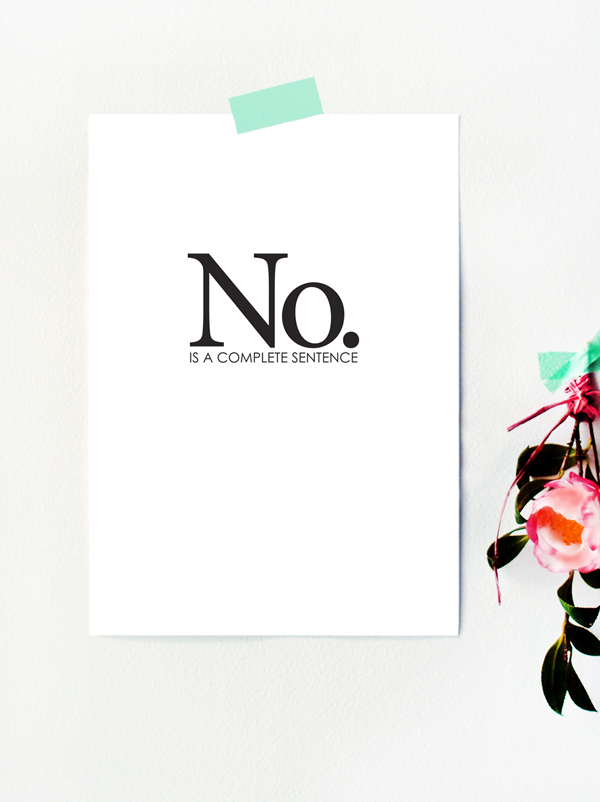Have you ever found yourself in a situation where someone asks you to do something, and you just don’t feel like it? Maybe you’re tired, or maybe you have other things to do. Whatever the reason, it’s important to remember that “no” is a complete sentence.
Free Printable Poster
 This free printable poster, created by We Are Scout, reminds us that saying “no” is completely valid. It’s a great reminder for those times when we feel guilty for declining an invitation or request.
This free printable poster, created by We Are Scout, reminds us that saying “no” is completely valid. It’s a great reminder for those times when we feel guilty for declining an invitation or request.
Learning to Say No
Saying “no” can be difficult, especially if you’re a people-pleaser. However, it’s important to remember that you’re not obligated to say yes to everything. Learning to say “no” can help you to prioritize your time and energy.
When you’re faced with a request, take some time to consider whether it aligns with your goals and values. If it doesn’t, it’s okay to decline. You don’t need to provide an explanation or justification for your response.
Remember that saying “no” doesn’t make you a bad person. It’s important to set boundaries and take care of yourself, even if it means disappointing others.
Healthy Boundaries
Setting healthy boundaries is an important part of self-care. When you say “no” to something, you’re setting a boundary. This can be difficult, but it’s essential for your well-being.
Boundaries help you to maintain a healthy balance between your own needs and the needs of others. They help you to communicate your limits and expectations, which can prevent misunderstandings and miscommunications.
The Importance of Self-Care
Saying “no” is just one part of self-care. Taking care of your physical, emotional, and mental well-being is essential for leading a happy and fulfilled life.
Self-care involves activities that make you feel good, such as getting enough sleep, exercising, eating nutritious foods, and spending time with loved ones. It can also mean taking a break from work or technology when you need to recharge.
When to Say Yes
Of course, saying “no” isn’t always the right choice. There are times when it’s important to say “yes,” such as when you’re presented with a new opportunity or when someone you care about needs your help.
The key is to feel confident in your decision. If saying “yes” aligns with your goals and values, and if it’s something that you genuinely want to do, then go for it. However, if it feels like a burden or if it doesn’t align with your priorities, then it’s okay to decline.
Conclusion
Saying “no” is a complete sentence, and it’s important to remember that you have the right to decline requests and invitations that don’t align with your goals and values. Setting healthy boundaries and practicing self-care are essential for leading a happy and fulfilled life.
So the next time you’re faced with a request that doesn’t feel right, don’t be afraid to say “no.”